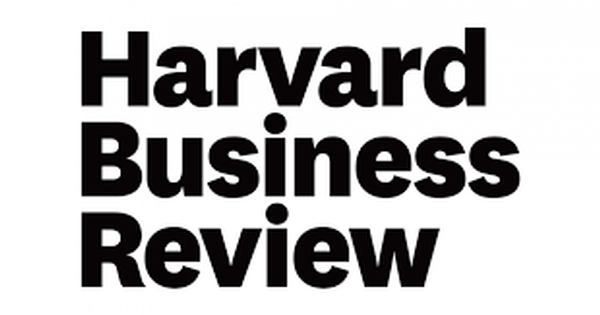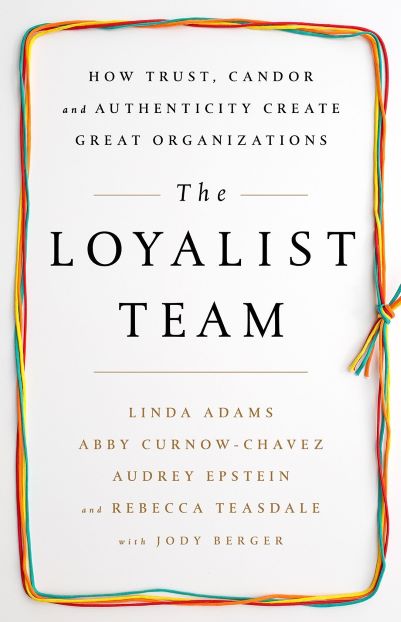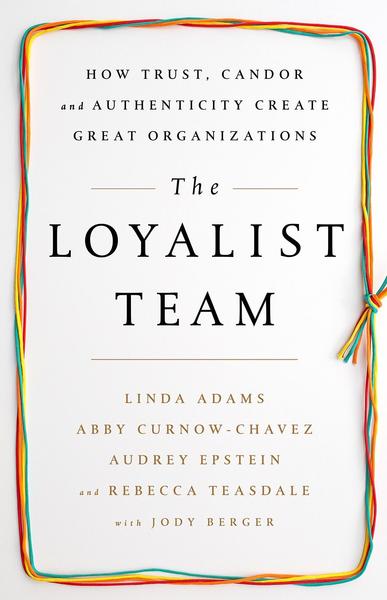Are You Listening?
Part One: Be a Coach to Your Team
April 10, 2020
This is the question I ask during every executive coaching session I have. The next question I ask is, “How do you know?†Right now, we have to work harder to know. We don’t run into others casually in the office every day. We don’t spend hours with them face to face brainstorming, working through problems, or in conference rooms. We are relying on phone calls, video meetings, and email for our communication and our connection to our team members.
Recent engagement data has proven the strong link between open and transparent, two-way communication from leaders and fostering a meaningful sense of belonging and high engagement for employees.*  Helping your employees stay connected to you, each other, and your organization right now should be high on your priority list. Â
Here’s a quick way to start. Below is a list of coaching questions to ask your direct reports during your next one-on-one. Your goal is not to have all the answers or solve all their problems. Your goal should be to simply listen openly, demonstrate concern and empathy, be a thinking partner, and help them work through how they are feeling, reacting, and focusing right now.Â
As leaders, we need to focus on two skills right now that don’t always come naturally to us:
- We need to ask open-ended questions.
- We need to really listen to the answers.
- How are you doing? How are you dealing with working from home?Â
- How are you managing getting your work done?Â
- What are you feeling best about?Â
- What’s concerning or most challenging for you right now?Â
- How’s it going working with your peers? Key stakeholders? Â
- How do you think we are doing as a team right now? Anything we could do better or differently? Â
- What about our communication? What is working best?  What’s not? Â
- What do you need from me right now?Â
- What’s one thing I could do better or differently to help support your productivity and engagement right now? Â
- What other ideas do you have for better communication, collaboration, or productivity right now? Â Â

Additionally, if your direct reports are also leaders with their own teams, you could ask them these questions. Â Â
- How are you communicating with your team and organization? Â
- How is that working? Are you getting upward feedback? Are you getting a sense of how the organization is performing and feeling right now? What’s clear to you and what’s not? Â
- What are you noticing about how your team is working    Source:  Yahoo Images together right now? Â
- How are your leaders/direct reports holding up? Anyone standing out as being especially strong right now? Â Â
- Anyone you are worried about? Â
- Is there anything your team/organization needs to hear from me right now? Â Â
Are You Listening? Â
Part Two: Run a Feedback Pulse Survey… coming next week  Â
 In order you hear, you have to ask. Understanding what creates engagement or more importantly disengagement is critical to having a high performing team. Newmeasures recently released their white paper with insights on the state of engagement generally. Check it out!!Â
Â
Â
Â
How I Use Disagreements to Build Stronger Teams
by Audrey Epstein December 2, 2019
Because I facilitate team sessions for a living, I’ve seen a lot of team interactions — all kinds of drama, some shouting and tears, but also a lot of laughter, joy, and bold action. Much about teamwork has been researched, dissected, and discussed.
Yet lately, I’ve been thinking a lot about an unexplored topic: how to get team members to disagree.
Read full article here.
Don't Overuse Debate on Your Team
by Audrey Epstein October 13, 2019
I love this article! While the article discusses the negative impact of debate on political discourse, I think it is just as much of a problem in business. Debate is overused as a communication style by many leaders. While we want our employees to do research, craft coherent arguments, and bring passion for what they believe, setting up a debate-style approach for discussions is so limiting. Here’s why:
Read full article here.
Build Self-Awareness with Help from Your Team
by Audrey Epstein August 13, 2018
There are lots of compelling reasons to build a better team. Great teams deliver stronger results, faster. They’re more innovative. They challenge you to learn more quickly and to be at your best. And, let’s face it — they’re simply more fun to work with.
Recently, I found a new reason to build a better team — to address the fact that most of us are surprisingly lacking in self-awareness. Researcher and author Tasha Eurich uncovered this disturbing statistic through her multi-year study on the topic of self-awareness: 95% of us think we are quite self-aware, but only about 10-15% of us actually are.
Read full article here.
How To Build The Amazing Team Of Your Dreams
By Linda Adams, Abby Curnow-Chavez, Audrey Epstein and Rebecca Teasdale January 19. 2018
Have you ever listened to a friend rave about her colleagues and wished you could be on a team like hers? Ever looked around your own organization and wondered why some teams work so well together when yours struggles with every step?
Building a great team isn’t a matter of luck. The highest performing teams don’t depend on simply hiring smart people, great chemistry, or even good timing. The most productive teams are not some happy accident. They are built and behave intentionally.
Read full article here.
Southwest's Heroic Crew Shows How a Strong Leader and Preparation Create Good Teamwork
The events of Southwest Flight 1380 demonstrate how even a crew working together for the first time can rise to the most critical of challenges.
by Linda Adams, June 26, 2018
We’ve all heard both the tragedy and heroism of Southwest flight 1380 where the engine exploded on a flight between La Guardia and Dallas. As the story unfolded, I was spellbound by the first interview of the entire crew on CBS This Morning.
Read full article here.
How Great Leaders Build and Maintain Trust
Bottom line...are you seen as trustworthy? And how do you talk about trust without everyone getting bent out of shape? Here are a few ideas.
by Audrey Epstein June 22, 2018
Talking about trust is tough in business. When a colleague tells you, “I don’t trust you†your first instinct is probably to react defensively or aggressively. Rarely do we respond with curiosity and an openness to understand. You may take “I don’t trust you†as an attack on your character and an affront to your integrity. But trust is the foundation for strong, productive relationships, teams, and organizations so it’s imperative that if you are told you are untrustworthy you need to change that fast.
In my research assessing hundreds of teams, I found that 70% of the variance between high and low performing teams centers on the quality of relationships of the team members. Additionally, top teams are 50 times more likely to successfully build and maintain trust than their less productive cousins. It’s nearly impossible to achieve common goals, talk about the toughest challenges, or collaborate across the organization without high trust.
Read full article here.
.
Â
Everything I Learned About Leadership I Learned From My Mother
Six Key Leadership Lessons From Mom
by Linda Adams June 13, 2018
My Mum is quite petite, gentle, and very Scottish. No drill sergeant or business card that read Household CEO, she was way more than just a mother. She was my first leader. I realize from my earliest days until today, almost every leadership lesson I needed to learn she taught me.
Read full article here.
Is it really possible to train implicit bias out of someone?
Don't rely on corporations to quell the nation's racism. Resolving bias is an issue of personal responsibility.
by Linda Adams May 31, 2018
In the month leading up to Tuesday's implicit bias training at Starbucks, the country was overrun with incidents that prove just how far the nation hasn't come on issues of bias and racial profiling.Â
There was the parent who was touring Colorado State University and called the cops because two young men who joined the tour late were being too quiet; the neighbor to an Airbnb who called the police when the people loading their luggage didn't wave at her; an LA Fitness employee in New Jersey demanded that two men pay for admission, though one was already a member and the other was his guest; a Tennessee neighbor called the police on a property investor who was looking at a home that was for sale. All are stories of Caucasians challenging the innocent actions of people of color.Â
Read full article here.
4 Ways the Footwear Industry Can Recruit and Retain Young Talent
By Nikara Johns May 1, 2018
As the shoe industry continues to undergo enormous change, emerging leaders are key for companies looking to disrupt the market. But recruiting and cultivating the next generation can be challenging for veteran executives who have been in the mix for decades.
Here, leaders in the field discuss specifics on what businesses can do to support future footwear trailblazers.
Read full article here.
4 Signs It's Time to Let That High-Potential Employee Go
Warning signs to watch for include an employee who feels entitled or just won't learn.
by Heather Huhman April 30, 2018
There’s nothing more exciting than finding an employee with high potential. Leaders spot such talent and lay out these individuals' path to greatness. But things don’t always work out that way.
In fact, a March VitalSmarts survey of more than 1,000 managers and employees found that 70 percent of managers surveyed had at least one high-potential employee they were considering firing because of poor performance.
This becomes a problem when leaders are unable to let go of unrealized talent. They continue to hope the employee will improve. But, in the process, employers just waste company resources and time.
There comes a point when leaders have to realize it’s time to let underperforming, high-potential employees go. Do you know when that is?
Read full article here.
How To Use Disagreements To Build Stronger Teams
By Audrey Epstein April 13, 2018
Because I facilitate team sessions for a living, I’ve seen lots of team interactions. All kinds of drama, some shouting and tears, but also lots of laughter, joy, and bold action. Much about teamwork has been researched, dissected, and discussed. Yet lately, I’ve been thinking a lot about an unexplored topic: how to get team members to disagree.
What do you do as a team member, if, after all the discussion and debate, the hours the team talked about a new direction, plan, or policy, you still disagree? What I see happen on most teams is acquiescence – giving in or just going along. It’s hard to know the line between sticking to your views and aligning with the team. Are you a bad team player if you don’t agree?
For a long time, I have facilitated team problem-solving sessions in the same way:
1.    First explore the issue from all sides, uncovering a comprehensive view of the current state and root causes
2.    Next, brainstorm options and agree on a broad path forward
3.    And finally develop recommendations and specific action plans
Read full article here.
Stop Looking for the Perfect Candidate. Look for One Who's Failed
It takes a special kind of person to succeed in a startup environment -- particularly someone who's familiar with failure.
by Heather Huhman April 9, 2018
Every day, startups walk the line between genius and failure. So it takes a special type of person to succeed in this environment. Employees need to be willing to make mistakes and learn to adapt.
"In a startup, trial and error is sometimes the only strategy to move forward," Andreas Pettersson, CEO of Irvine, Calif.-based video IoT company Arcules, said in an email. "Employees must be able to adopt that methodology from the start. If they do not, they will fail anyway."
Because of this ongoing risk, you need to assess your job candidates' feelings about failure early -- as early as the hiring process. Potential employees may talk about an obstacle they've overcome in the past. But that isn't a complete measure of how they might deal with mistakes in a real-life setting.
Instead, you need to dig deeper to find out if a candidate can handle (and learn from) failure at your company.
Read full article here.
16 Daily Habits Highly Successful People Have (and the Rest of us Probably Don't)
High achievement isn't an accident.
by Christina DesMarais March 28, 2018
High achievement in business and life involves intention. Meaning, it's not going to happen accidentally. Here are the things more than a dozen successful executives do every day because they say it's a habit that makes a difference.
Read full article here.
4 Ways the Best Leaders Turn Their Employees Into All-Stars
We've all got a story to tell. But as a leader, it's your job to use your tale to improve your organization.
by Heather Huhman March 28, 2018
I have never met of half of my employees in-person. But as the leader of a completely virtual team, it has always been important for me to maintain a company that feels like a family. I want each team member to feel valued, trusted, and loved. And not just by me, but also their co-workers.
To create such a culture, I try to be the example. For me, the most natural way to do that is to be a storyteller. I'm open and honest with my employees about my life. From what I do on the weekends to my struggles with infertility, they know my story.
As a result, they've trusted me and each other with their own stories, making us a more united and caring team.
Unfortunately, in this age of data overload, many leaders forget the power of storytelling. Don't be one of those leaders. Use these four strategies instead:
Read full article here.
What Saturday’s March for Our Lives Should Mean
Commentary by Linda Adams March 23, 2018
I am tormented like so many by the Feb. 14 acts of violence in Florida that took the lives of 17 innocent people. More than anything I wish I had the answer. But, if the answer were easy I have to believe we would have enacted it into legislation already and we’d be certain that never again would another child die in what should be the safety of their school.
As with the topic of gun violence and any other hot button issue, in America there are no easy answers. Democracies come pre-loaded with a million challenges. The options are not always so great. Winston Churchill once famously said, “Democracy is the worst form of government except for all the others.†So our less than perfect union is what we have. And we have no choice but to work together to find the answers to what ail us.
Read full article here.Â
These are the secrets to keeping your team productive and happy during March Madness
by Meredith Lepore March 16, 2018
There’s an excitement in the air, people are walking with a spring in their step and everyone seems to be generally more jovial. Is it Christmas already? No, it’s March Madness. It’s a super fun time for many people, but for offices, it can be a real problem when it comes to productivity.
According to new findings from OfficeTeam Ladders reported on, companies could lose a maximum of $2.1 billion in “lost wages†during the tournament and the average employee “spends six hours on sports-related activities.†If they keep up that pattern for the entire tournament, which lasts 15 workdays, that is 25.5 minutes per day.
Read full article here.
What CEOs Can Do To Improve Their "Executive Presence"
by Audrey Epstein, March 16, 2018
Lately, almost all my executive coaching clients want to work on their “executive presence.†I’m not sure why this is a hot topic lately. Maybe the popularity of TED Talks has upped the expectation to engage, entertain, and inspire our audiences, even in business meetings. Maybe our attention spans have dwindled in direct proportion to the uptick in our Twitter usage. Maybe we care more about authenticity and purpose than ever before. Maybe we are just tired of being Powerpointed to death.
Whatever the reason, the need is real. Leaders are being asked more than ever to:
Read full article here.
How Ready Is Your Backup Qb? Better Question, How Ready Is Your Team For A Backup?
by Linda Adams, March 16, 2018
At this year’s Super Bowl, for many fans and sports pundits, the unthinkable happened. Nick Foles, the Eagles back-up quarterback, led his team to victory over the most decorated quarterback in NFL history. And he played knowing that even with a historic win, his position was not secured long term as Carson Wentz continues to recuperate from his season-ending injury.
Read full article here.
How to Build Loyalty in Your Marriage
by Scott Kedersha March 18, 2018
I recently finished the book The Loyalist Team: How Trust, Candor, and Authenticity Create Great Organizations by Linda Adams, Abby Curnow-Chavez, Audrey Epstein, and Rebecca Teasdale with Jody Berger. Yes, it has a bunch of writers/contributors, and I truly enjoyed and learned much from this book.
We all work and live in the world of teams. Our family just returned from a trip to the Space Center outside Houston, and we saw and heard about the necessity of teamwork in getting a shuttle off the ground. This week my favorite sporting event of the year starts—the NCAA Tournament. No team will win unless they work together.
Read full article here.
Finding Big Meaning in Small Moments
Four steps to learn to connect and make a difference in everyday interactions
by Rebecca Teasdale, March 11, 2018
At the end of a recent business trip, I hopped into a cab and headed for the airport. Tired and drained, I relaxed into the seat behind the driver and retreated into my head. My thoughts turned to my life at home –kids, husband, commitments. Immediately, my thinking was interrupted by the driver who cheerfully started chatting. Typically, this is where I would turn up the non-verbals, pleading, “Don’t engage me. I’m tired and don’t feel like small talk.†Yet, this time, I chose to engage, starting with, “Where are you from?†“Eritrea,†he said. “I bet you’ve never heard of it.â€
He was delighted that I had heard of it and actually could place it on a map. In a short time, I learned that he had returned to his home country a few weeks ago to bury his mother. Most of his family had emigrated due to the threat of conflict with neighboring Ethiopia and an oppressive government. Life there is arduous and has one of the worst human rights records in the world. Yet, despite the bleak circumstances, he had a cheerful and sunny presence that followed me home.
Read full article here.
You're Not Losing Employees Because They're Disloyal, But Because You Are
If you can't find a way to show employees they are valued, it won't be long before their allegiance fades.
by Heather Huhman, March 7, 2018
It's difficult to find great talent, and when you do, you surely want individuals who will stick around. But employees aren't feeling the love, and as a result, employee retention is suffering.
A December 2017 CareerBuilder survey of more than 3,600 employees found that 75 percent believe they're loyal to their company. Yet, only 54 percent feel their company is loyal to them. While many leaders think competitive pay and benefits are enough to show their dedication, true loyalty requires a lot more.
After seeing this shocking percentage, I decided to ask my own employees if -- and how -- they felt our leadership team was loyal to them. One aspect of loyalty they mentioned was that we have their backs, whether it's dealing with a tricky client or handling disagreements internally.
I have confidence in my employees and their abilities. So, it's only natural for me to go to bat for my team when someone treats them poorly. It's a major part of my leadership style.
If you can't find a way to show employees they are valued, it won't be long before their allegiance fades. Luckily, there are plenty of ways for employers to declare their loyalty.
Read full article here.
It's So Simple: How to Be the Most Liked Person in the Room
If you want to get ahead in business and life, just make sure you don't behave this way.
by Christina DesMarais February 24, 2018
If you want to get ahead in business and life, inquisitiveness is an essential character trait.
Think about the last time someone asked you good questions about your life to get to know you better. Chances are, this person left a positive impression in your mind.
Now, consider an opposite experience.
My husband, children and I were seated at a table with another family attending a mutual friend's wedding. We didn't know these people, and instead of spending an entire meal in silence, or chatting amongst ourselves, we engaged the couple across from us in conversation. An hour later, we knew all about them--where they lived, what they did for a living, what their kids were into, and even where they last went on vacation. Our big takeaway? These were not people we would want to be friends with or know in the slightest, for one reason: In all that time, not once did they ask us even a simple question.
Read full article here.
The Truth About Teams: How to Know What Type of Team You're On
by Linda Adams, Abby Curnow-Chavez, Audrey Epstein, and Rebecca Teasdale
The best teams make it look easy. They perform together so well and so consistently that it appears as if they are one single organism instead of a group of disparate personalities with varied backgrounds. It can look, from the outside, as if skilled and talented people came together and blended their skills and talents effortlessly.
If that were the case, however, that no effort was necessary, building a high-performance team would be as simple as pulling smart people together and saying, “Go.†But that’s not the case. Haven’t all of us seen a sports team with the most talented athletes implode long before the playoffs? And maybe we’ve even served on a team of extraordinary individuals who came together and failed, sometimes spectacularly. The missing ingredient—the difference between the high flyers and the failures—is more than luck or good timing. The best teams are built with intention and we can tell you how.
Read full article here.
The Real Reason Your Company Isn't Achieving Its Goals
Managers need to be more involved in setting and tracking progress toward those goals; and you, as their leader, need to show them how.
by Heather Huhman, February 22, 2018
Giving employees autonomy is important. But even as those employees dig into their work and appreciate that autonomy, they may be failing to pay enough attention to another, crucial aspect of the job: goals.
A December 2017 Accountemps survey of more than 1,000 U.S. workers, for instance, found that 11 percent of employees polled said they never discussed goal-related progress with their managers.
This lapse, in turn, derives from another problem with how many organizations approach goals: the lack of collaboration.
Placing responsibility on employees to check in with their managers ignores the need for a collaborative process. In other words, assigning an employee a goal and then waiting for the results is a mistake.
Managers need to be more involved in setting and tracking progress toward those goals; and you, as their leader, need to show them how.
Read full article here.
5 Tips to Hire a Great Team Player
by Rebecca Teasdale February 20, 2018
I was recently talking with a client who was agitated that she had just made a bad hire. It wasn’t that this new person was inexperienced or unskilled; he was smart and capable, just as had shown up in the interview. But he was quickly proving to be a lousy teammate – ego-driven, secretive, selfish and unproductively competitive.
Great teams are built intentionally. People often think that the best teams come together by some combination of good luck and good timing, but the truth is a much more deliberate story. We studied thousands of teams in dozens of industries and found that the highest performing teams always had similar traits and characteristics. The individuals on these teams chose to be great team players.
Read full article here.Candor Moves Mountains at Vail Resorts
By Audrey Epstein February 16, 2018
Executives at Vail Resorts don’t tone down their comments or gloss over the truth when the team gets together. CEO Rob Katz delivers his opinions straight up and he expects members of the executive committee, or EC, to do the same.
“Now, the conversations flow in our meetings and there’s a real comfort with knowing how to use the time effectively,†said chief marketing officer Kirsten Lynch. “But at the first EC meeting I attended, I remember there was some great, direct feedback, followed by long, awkward silences.â€
When Lynch joined the Colorado-based company in 2011, she was already a veteran of three Fortune 500 companies. She’d been to plenty of high-level meetings and was still surprised by the level of candor that her Vail colleagues used to challenge and push one another. And the way Katz spoke was even more unusual.
Read full article here.
5 Steps to Creating a Super Bowl Winning Team
by Linda Adams February 1, 2018
Just like the New England Patriots and the Philadelphia Eagles, great teams do not happen by accident. There has to be a deliberate intention in investing in the team and a shared goal that is bigger than any one team member.
This week, sports fans, columnists, and analysts will debate the strengths and weaknesses of each team every minute of every day until Super Bowl LII begins Sunday. Depending on how the game goes and how decisive the victory, conversations will probably continue long after the last down with arguments over which team had the strongest quarterback, the smartest coach or more speed in the backfield.
Those details matter—on any team, each individual’s talent contributes to team performance—but the difference between winning and losing, between good and great, between the championship ring and a hollow-sounding “better luck next year,†is teamwork.
Read full article here.
Why Being Loyal is Damaging our Union
by Linda Adams January 31, 2018
On Tuesday night we watched yet another State of the Union address. Regardless of where you stand on the president, there is no doubt that gridlock is alive and well in politics, as our leadership’s focus lurches from one news cycle to the next.
At a time where lines seem drawn harder than ever, why is loyalty not the answer?
Read full article here.
Trump’s Leadership Ruined Trust Among the White House Staff. Are You Doing the Same at Your Company?
The alleged chaos in the White House begs the question, are other American workplaces equally dysfunctional?
by Heather Huhman January 29, 2018
Earlier this month, author Michael Wolff released Fire and Fury: Inside the Trump White House, which examined, among other things, the work environment in the White House during Donald Trump's presidency.
To say the book was controversial is an understatement: After all, according to Wolff's reporting, employees -- lots of them -- have been fired. Tensions have raged between and among some of his top advisors. And, the book claims, employees have been turning on one other.
With turnover so high and scandals so prevalent, the administration's top employees have become unsure whom they can trust. All of which begs the question:Â Are other American workplaces equally dysfunctional?
Read full article here.
Why a Loyalist Team Is the Best Kind of Team to Build at Your Startup
by Audrey Epstein January 26, 2018
To defy the odds of unself-awareness, work to create a Loyalist Team around you, people who trust you, support you and challenge you to be your best. The Trispective Group teaches us what to consider.
There are lots of compelling reasons to build a better team. Great teams:
- Deliver stronger results faster
- Are more innovative
- Challenge you to learn more quickly and be at your best
- Are simply more fun
Read full article here.
Don’t Lose That ‘A+’ Employee to a Performance Rut
Not all employees are comfortable opening up about why their work is slipping. They'll just apologize and promise to do better. That's why you need to get proactive.
by Heather Huhman, January 19, 2018
Kim Dawson is the director of employee experience at the Austin-based employee engagement platform, YouEarnedIt. That "experience," she acknowledges, hasn't always been a positive one.
Specifically, Dawson, like many leaders, tells a story about an excellent employee of hers whose performance nose-dived. So Dawson talked with the woman's manager, who was new to the position, She then sat down with the employee herself. "We had a very frank conversation about the changes in performance. We asked what had changed to negatively affect her productivity," Dawson said by email. "We discovered that she was feeling burnout. We also learned that her new manager had a completely different management style than her former leader."
After the discussion, the new manager was coached to give the woman the support she needed. From there, things improved.
Read full article here.
4 Steps to Hit the Reset Button with Your Team in 2018
by Audrey Epstein December 20 , 2017
The New Year brings with it the opportunity for change, growth, and renewal. We commit to accomplish new goals or resolve to finally complete old ambitions. Most of us feel more optimistic at the beginning of the year. New Year’s Resolutions are expected. Gym memberships go through the roof in January. The “fresh start†feel of each new year is infectious.
What if we could start over with our teams as well? What if we could take the old patterns of dysfunction, of gossip and infighting, or cliques and politics of 2017, and turn them into high-performing team behaviors in 2018? Toxic team behaviors destroy employee morale and engagement, stifles creativity, and stakes personal agendas above the team or company goals.
So, how do you reset with your team?Â
Read full article here.
Toxic Employees Can Be Ignored By Co-Workers, But Not By You
Letting bad behavior slide is going to lead to a hostile work environment where no one is successful.
by Heather Huhman, December 20, 2017
Everyone has had that one co-worker who makes everyone's lives harder. They never meet deadlines, or they talk down to their teammates. The work environment becomes so toxic that all employees can do is hope the bad co-worker calls in sick.
Many employees feel helpless when dealing with a toxic co-worker. In August, Fierce, Inc., a company that specializes in leadership development and communication training, released a survey of more than 1,000 full-time American employees. It found that 53 percent of respondents deal with horrible co-workers by ignoring them. This is because 41 percent said that once management knows about the situation, leaders do nothing.
It's time to step up. Confront toxic employees -- or risk losing your quality talent. But the solution isn't always as simple as firing the negative influence.
Here are four ways to deal with a toxic employee:
Read the full article here.
Loyalist Teams Rock the Boat
by Abby Curnow-Chavez December 10 2017
Loyalist Teams consistently deliver extraordinary results. They’re the teams we remember all our lives. On these teams, we do our best and most creative work, blow through challenges and exceed our own expectations.
You know you’re on a Loyalist Team when:
- You trust your teammates implicitly; they have your back and you have theirs
- You always assume positive intent
- Team members talk to each other, not about each other
The Loyalist Team: The Tools You Need To Create A Better Team Culture
by ANULEKHA VENKATRAM, DECEMBER 6, 2017
Can you remember the last time you worked on an extraordinary team, where you felt challenged, had fun, and were delivering amazing results to your organization?
If you can’t, that’s okay!
According to the authors of The Loyalist Team: How Trust, Candor, and Authenticity Create Great Organizations, “no matter how dysfunctional a team is, there is hope.â€Â
Read full article here.
Matt Lauer Proved Anyone Can Cross the Line, But Are You Ready to React?
From sexual harassment to racist comments, leaders can never excuse inappropriate behavior -- even when it involves a beloved employee.
by Heather Huhman December 5, 2017
Over the last few months, many sexual harassment victims have come forward. But perhaps no story has been as surprising as the firing of Matt Lauer. Part of this comes from how quickly NBC dealt out his punishment. One morning he was on the air, and the next he was gone.
Then there's the fact that many of his colleagues describe Lauer as beloved. When announcing his termination, Savannah Guthrie, Lauer's co-host of five years, expressed confusion.
"We are grappling with a dilemma that so many people have faced these past few weeks: How do you reconcile your love for someone with the revelation that they have behaved badly and I don't know the answer to that," she said on last Wednesday's Today show.
Many people have a similar reaction when they discover a close co-worker is capable of terrible acts. You often can't predict if an employee is going to cross a line. But how you react to the situation can affect how the rest of the team recovers. Whether it's sexual harassment or other unacceptable behavior, these four tips will help you react effectively:
Read full article here.
Gossip's Complicit Role in Sexual Harassment
by Linda Adams December 1, 2017
Is there such a thing as good gossip? In the face of these horrendous stories of sexual abuse and harassment I've heard the argument, “How many women would have been spared the ignominy or trauma of an “inappropriate†experience with (fill in the blank) if they had been warned about his behavior through gossip?â€
But, let’s follow that argument. I’m sure there are women who were spared because of gossip, not only in these horrendous situations we are hearing about now in the media but every day in small and large businesses across the country.
I know I was. “Just a word to the wise, you don’t want to be the last one left at the bar with Bill after the office party tonight.†Or, “When you’re on this road trip with Steve, make sure you keep it really professional. Just saying.†So I did.
Read full article here.
Taking a Hard Line Against Gossip in the Workplace
by Karen Dybis November 30, 2017
You’d think leadership consultant Linda Adams would be alright with a little office gossip – you know, that banter around the proverbial watercooler about your coworkers, managers and owners?
That would be a big N-O. Adams, a partner of the Trispective Group, believes that all gossip is damaging to a company, its culture and its success. What most of the working world sees as harmless or even fun Adams sees as corrosive to the point that it can destroy even the best of teams.
Read full article here.
7 Steps to Manage a Global Team
by Rebecca Teasdale November 28, 2017
People often think great teams come together by happy accident, or that they just got lucky that one time they had a great team. Our research shows otherwise.
When we looked at thousands of teams in dozens of industries, we saw that extraordinary teams always shared a specific set of traits and characteristics. It didn’t matter if these teams worked in the U.S., Europe, Asia, or had team members in all three. On these teams, every person was loyal to the team and to each other. Individuals worked to ensure the team’s success and each other’s success just as they worked to ensure their own.
Building a “Loyalist Team,†as we call these high achievers, is not easy, even when the whole crew works out of the same office and can discuss decisions in person. Building and maintaining a Loyalist Team becomes even more challenging when team members work in different time zones or speak different languages. But it is possible. Here are a few steps to get your global team working better together:
Read full article here.
Is Your Team Struggling To Produce? This May Be Why
by Jeff Boss, November 15, 2017
Teams aren't the future of work. They are the work, and it takes work to make teams work. One of the biggest challenges I see in helping business team adopt greater team rigor circles around identity. The problem is either it’s unclear as to why the team exists which inhibits potential from being fully optimized or the team's identity is so deeply ingrained that silos and turf wars ensue to protect that identity. Let's talk about the former.Â
Read full article here.
3 Simple Steps to Prevent Gossip from Infiltrating Your Office
by Linda Adams November 8, 2017
Work gossip. Some of us participate in it, and most of us see it as a relatively harmless reality of working in an office. But the truth is, gossip has the power to dismantle even the best teams and keep good teams from becoming truly great. Here’s why work gossip is bad news:
Read full article here.
Leaders of Great Teams Don’t Rely on Luck
Great Leaders Build Great Teams with Intention
Guest post by Linda Adams, Abby Curnow-Chavez, Audrey Epstein and Rebecca Teasdale November 2, 2017
If you lead a team, you know that the best ones don’t happen by happy accident. Outsiders may look at extraordinary teams and think, “The people on them are so lucky,†or “They just have great chemistry.†If it’s your team, however, you know that you can’t count on luck or chemistry to keep your team together and on target. You know that the best teams are built with intention and hard work.Â
We run The Trispective Group, a coaching and consulting firm, and wanted to demystify the process of building a great team for our clients. We studied thousands of teams from dozens of industries to see what separated the best from all the rest. We assessed each team, compiled the data, analyzed the results, and looked for patterns. Â
Read full article here.
Eight Tips to Instantaneously Build the Team of Your Dreams
by Linda Adams October 31, 2017
Have you ever grabbed a coffee with a friend and listened to her rave about her colleagues, and then wondered what you would say when she asks you how things are going with your job? Ever looked around your own organization and wondered why some teams work so well together when yours seems to struggle every day? Good teams don’t just happen by accident. Great teams share a set of identifiable and replicable traits and characteristics. On the most effective teams, people are loyal to one another, the team, and the larger organization. People share information, resources and a commitment to put the team agenda ahead of any individual agenda. These are called “Loyalist Teams.â€
Read full article here.
These Are The Three Types Of Teams That Will Derail Productivity
Which of these traits do you see among your coworkers?
by Stephanie Vozza, October 24, 2017
If you’ve ever been on one, you know what a team that works well together looks like. Individual strengths complement each other, members have each other’s backs, and a positive, uplifting culture makes going to work a pleasure. Unfortunately, this kind of team is rare. Many teams struggle to work well together as personalities clash.
Read full article here.
8 Steps to Creating a Loyalist Team
Looking for a loyalist team? This group’s study has identified the crucial steps.
by Abby Curnow-Chavez October 23, 2017
Teams work or they fail to work. And often, the people on them can’t give specific reasons for either outcome.
When teams fail, they often dissolve into cliques riddled with blame or confusion. You see it everywhere: The offensive line blames the quarterback for a late throw; the quarterback points to the wide receiver who bobbled the ball, and the receiver looks back to the linemen who let the opponent run free and interfere with the pass.
Everyone sees fault and assigns blame from their own vantage point.
In the world of business, nearly all work is done in teams. Ask anyone and they’ll tell you most of the teams they’ve been on are average or mediocre, or good but not great. However, some have experienced an extraordinary team—a loyalist team—the kind that makes a lasting impact and sets the bar for what greatness looks like.
Sadly, many can tell you in detail about the toxic teams they were on where gossip, sabotage, and finger-pointing was the norm. They too made a lasting impact—a very negative one.
Read full article here.
The Challenges of Showing Appreciation on Boss's Day
by Dana Wilkie October 16, 2017
You like your boss. You appreciate that she gives you a flexible schedule, frequent shout-outs and criticism that's actually constructive.
But now that today is National Boss's Day, you feel weird about dropping a Hallmark card on her desk, even though you know some of your colleagues plan to do that. To you, it feels like fawning.
To prevent employees from feeling awkward or obliged on such a day—or even, say, on a boss's birthday or work anniversary—is it better for the company to take the lead by having leaders, instead of rank-and-file workers, arrange appreciative cards, gifts or meals for supervisors?Â
Read full article here.
About Leadership, Loyality, and Legacy
by Linda Allen October 13, 2017
Have you ever observed and admired a couple who have been married for multiple decades? You know the ones I mean. Their relationship runs smoothly as a perfectly balanced, well-oiled machine. Not a vibration of discord is present, even when challenges confront that indomitable team of two. They’ve mastered the recipe of making a team, in this case, their marriage, function at the highest level. And I suspect that the rules and laws of success that work for them are equally applicable to teams in the workplace.
I’ve been thinking of late about things on the opposite end of that harmonious spectrum. There’s discord in politics, corporate America has seemingly run amok, and chaos seems to be gaining ground everywhere. When we obviously know how to create a better world, why don’t we? Sometimes, this magical and mystical universe in which we live serendipitously orchestrates answers to our questions. And I recently had a new book come my way that sheds light on the path to creating that better world, in our homes, our jobs and businesses, in politics, and in the world. A world based on loyalty.
 Loyalty: A Concept Worth Reviving
Loyalty: A Concept Worth Reviving
In short, “The Loyalist Team: How Trust, Candor, and Authenticity Create Great Organizations†is a very worthwhile read. The product of a team of authors, this is a resource for those who are sick and tired of the in-it-for-me attitude so commonly experienced in today’s business world.  They show you how to create what they’ve called the loyalist team. What’s a loyalist team? In their own words:
They are loyal to one another, the team, and the larger organization. These individuals work to ensure each other’s success as they work to assure their own. They run toward the tough conversations, not away, and refuse to let each other fail.
Who wouldn’t want to be part of that kind of team? Pick up the book, and learn how to make your team into a Loyalist Team.
Originally posted here.
Â
Technology Can Help with Communication
by Lisa Green October 8, 2017
A report last month on workplace communication and employee engagement from Fierce Conversations and Quantum Workplace outlined when it's best to use technology and when it's not.
Forty-six percent of respondents to a survey thought technology-assisted communication – email, texting and the phone – was more susceptible to miscommunication than in-person communication. But almost as many respondents – 43 percent – believed both were equally susceptible to miscommunication.
Read full article here.
6 Questions Great Leaders Ask Their Teams
by Jeff Boss October 5, 2017
It’s humbling to ask questions. After all, the moment that you ask a question is the moment you reveal what you don’t know. To some, asking questions is a death-blow to their ego, while to others, it’s a stepping stone to clarity. In fact, during research for their book The Innovator’s DNA, the authors discovered that the strongest leaders (and the people destined for the C-suite) asked questions because they were humble enough to acknowledge they didn’t know everything and confident enough to admit it.
The fact is, the most influential leaders realize that their questions are more powerful than their answers because questions shed light on two important things:
Read full article here.
Book of the Week: The Loyalist Team: How Trust, Candor, and Authenticity Create Great Organizations
by Lioness Staff October 4, 2017
Book reviews for people who just want to know the best parts of the best books to grow their startup.
Read full review here.
5 Steps to Fix a Toxic Team
by Abby Curnow-Chavez September 28, 2017
In the world of business, it’s safe to say all work is done in teams. Ask anyone and they’ll tell you most of the teams they’ve been on are average or mediocre, or good but not great. And sadly, many can tell you in dreaded detail about the toxic teams they’ve been on where gossip, sabotage, and finger-pointing were the norm.
Does this sound anything like the team you’re currently on? Are you the leader of one of these teams? If so, you know how these teams can suck the life out of you and it’s time to turn things around. Â
My partners and I wanted to understand what separates the best teams from the toxic ones so we studied thousands of teams, analyzed the data, and looked for patterns. We named the worst of the worst Saboteur Teams because, on them, someone is always working against at least one of their teammates.
Here are the telltale signs the team you’re leading is a Saboteur Team:
Read full article here.

































.png)
.jpg)






